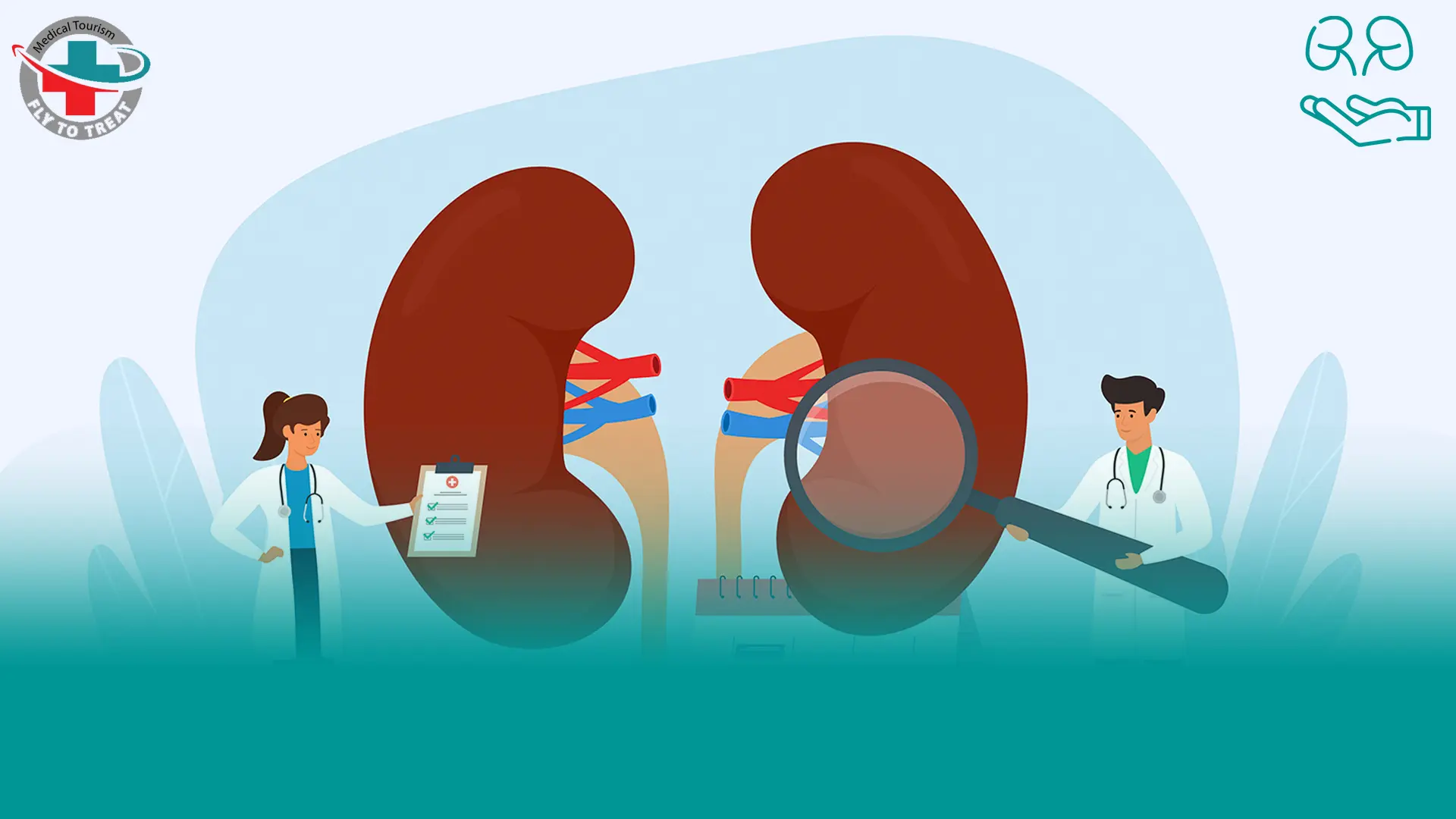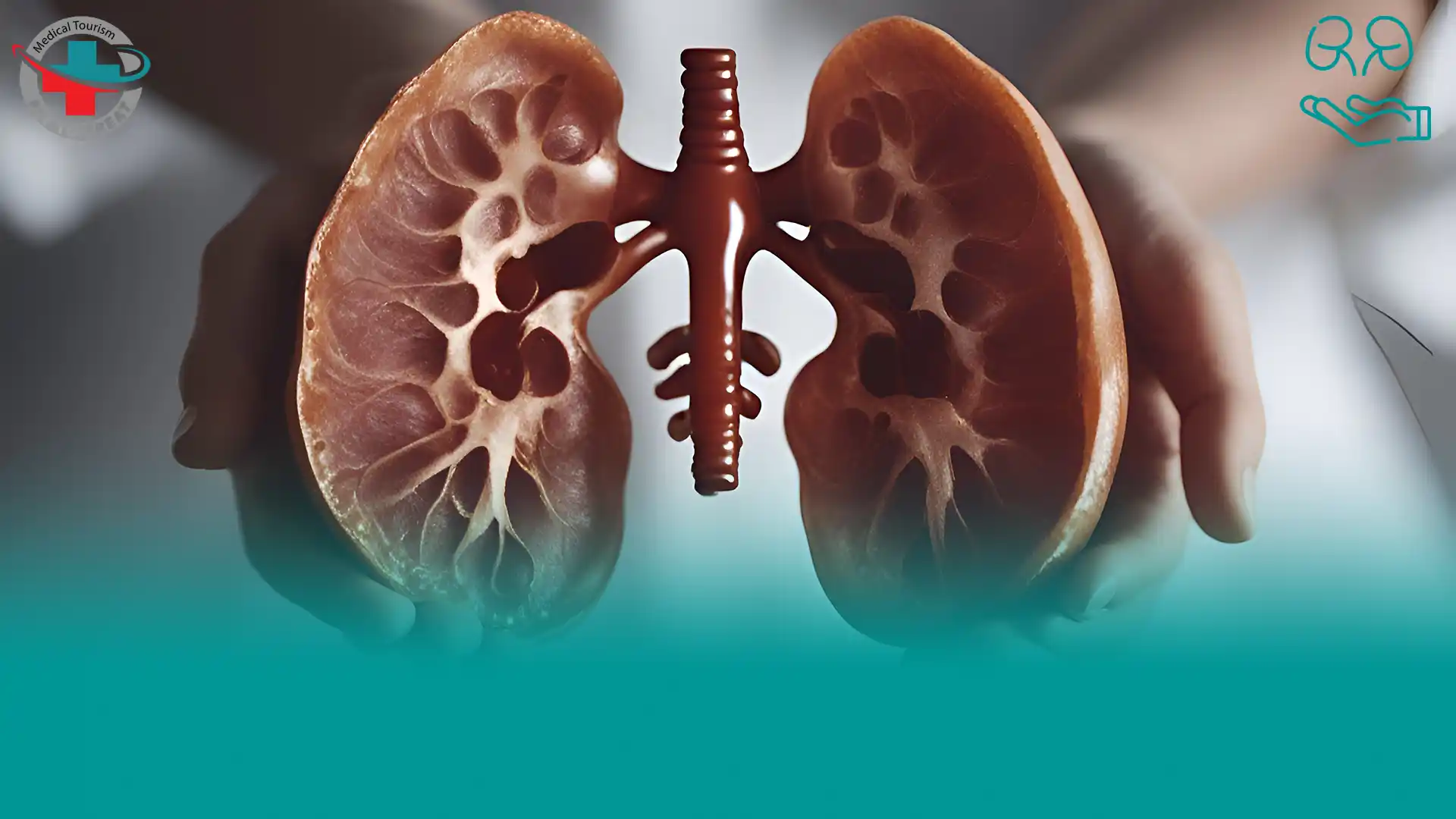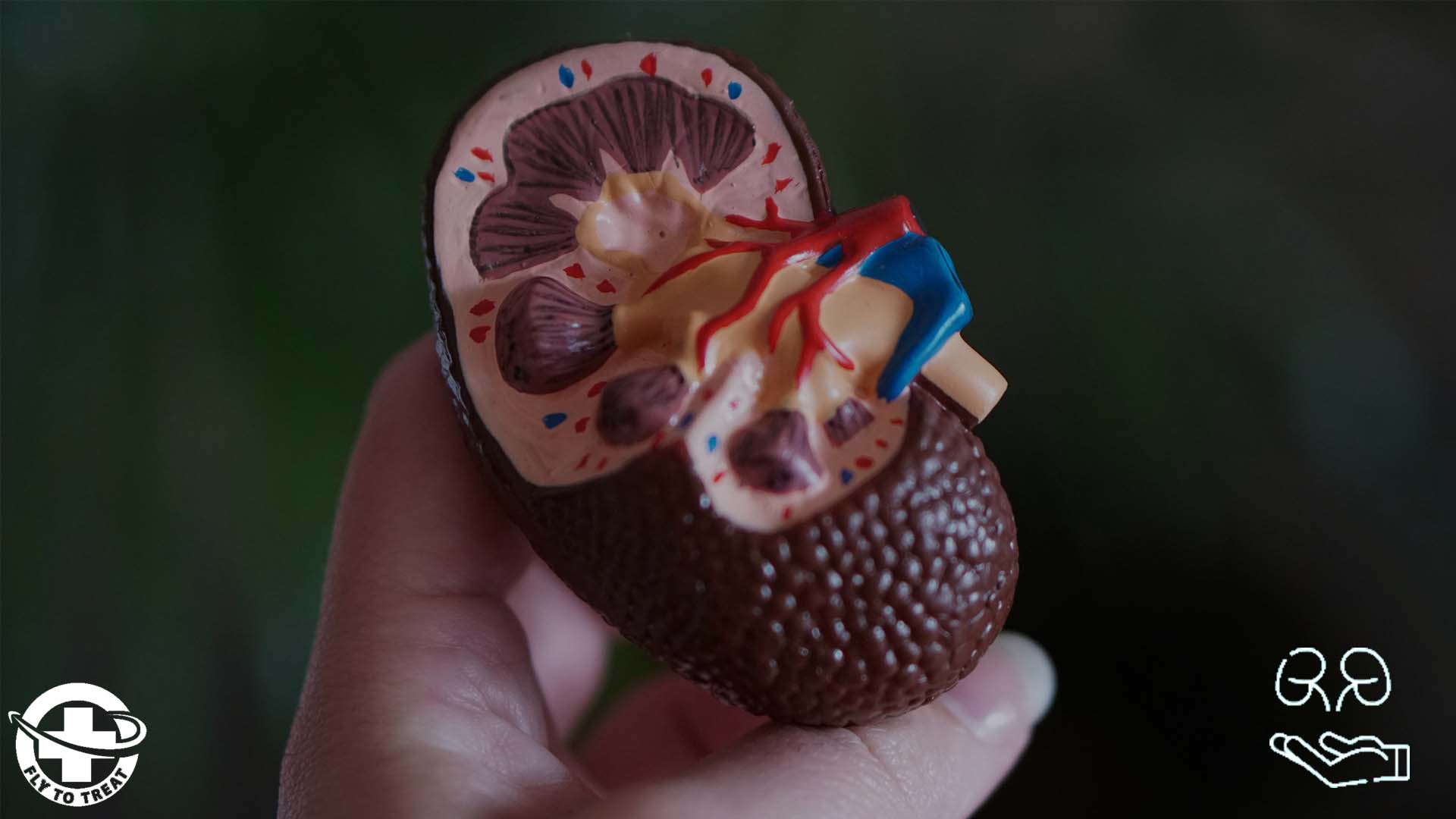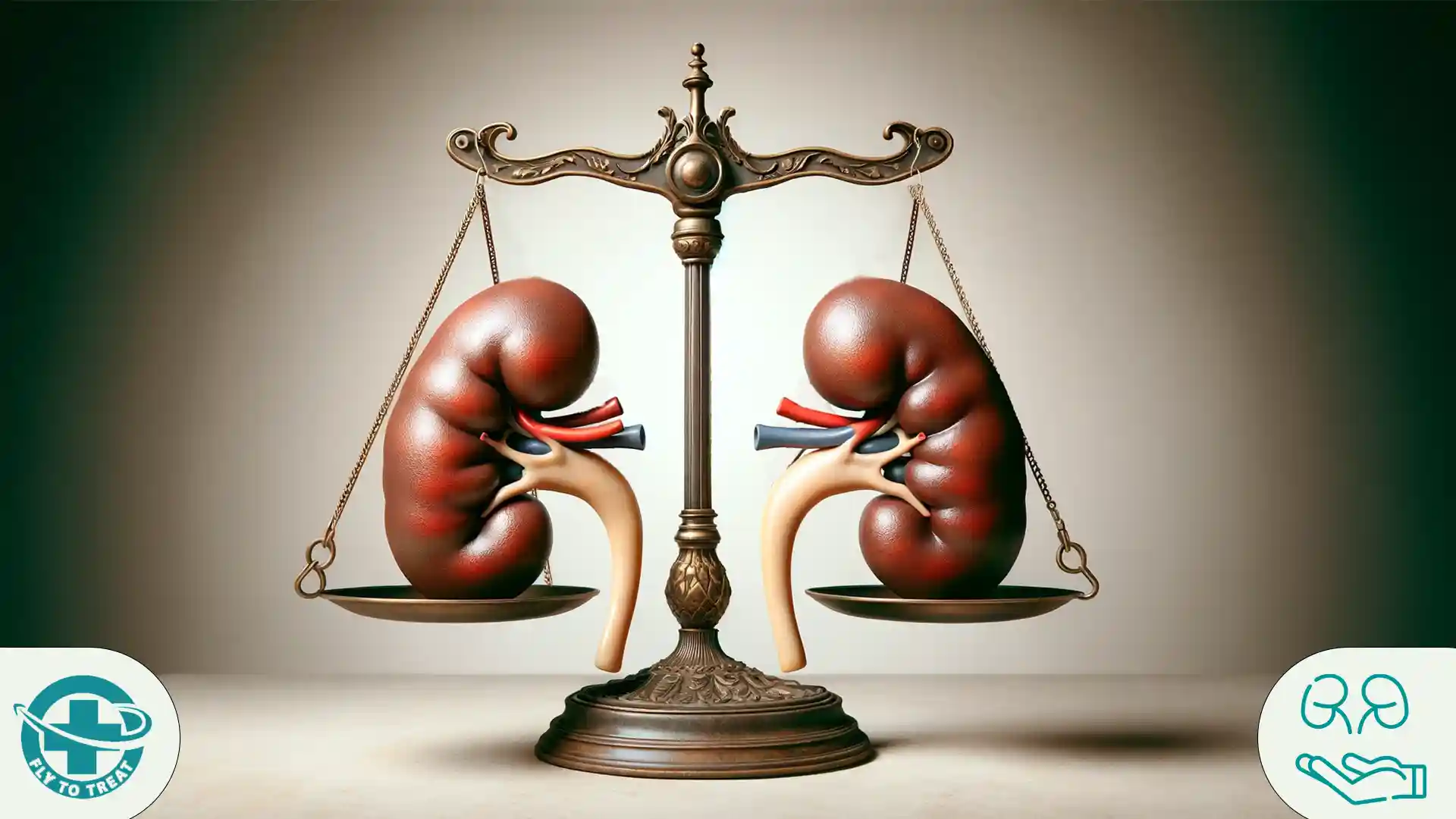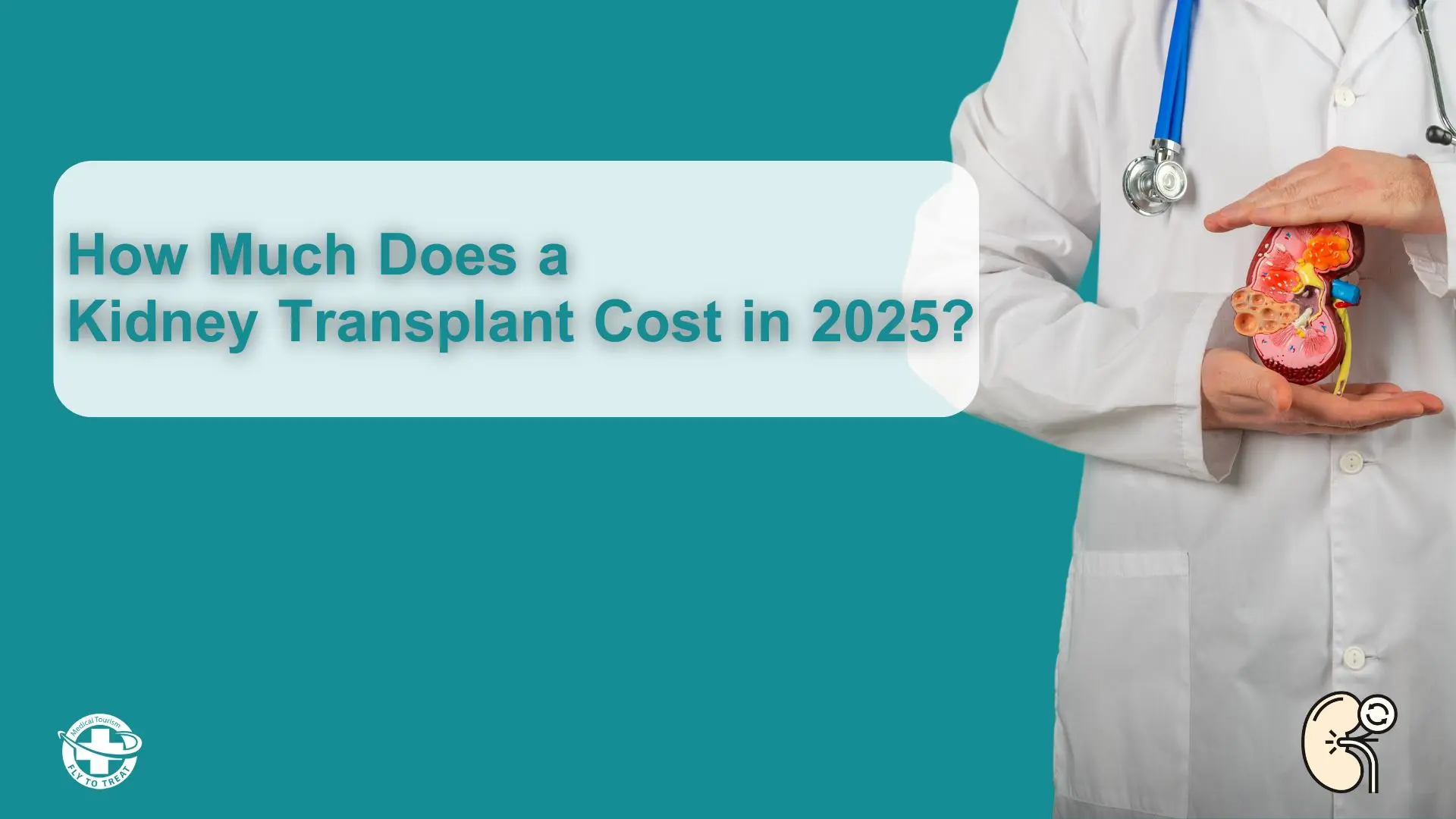
How Much Does a Kidney Transplant Cost in 2025?
The cost of kidney transplant remains a significant concern for many patients and their families. Kidney transplant is a life-changing treatment that offers hope to individuals with end-stage renal disease, though. Kidney transplant donor cost vary dramatically across countries, influenced by medical advancements, hospital charges, donor availability, and insurance coverage.
In order to assist patients in navigating the complexity of kidney transplant cost 2025, FlyToTreat is dedicated to offering clear and trustworthy information. This article will break down the costs of kidney transplant in different countries, and examine how healthcare programs help people with financial concerns.
For free consultation, Click Here
This article will provide the insights you need to plan your treatment effectively, answers your qustions such as: "How much does a kidney donation cost 2024?", "Kidney transplant cost 2025", or "Which country offers the most affordable kidney transplant?" or even "How much does a kidney cost?"
You may wish to learn about: “Best Countries for Kidney Transplant”.
Table of Contents
-
- How much does a kidney transplant cost without insurance?
- How much does a kidney transplant cost with Medicare?
- Does insurance cover kidney transplants?
- Why is a kidney transplant so expensive?
- How much do kidney transplants cost in Australia?
- Iran kidney transplant cost
- Kidney Transplant price in India
- Is a kidney transplant cheaper than dialysis?
How much does a kidney transplant cost without insurance?
Although some insurance companies cover the cost of kidney transplant, most don't accept that, and you should pay for a kidney transplant. The cost of this procedure can differ from country to country, and there is no absolute kidney transplant price. So many factors can affect the cost. The kidney transplant cost in the USA is about 230,000$ and can be costly for most people. The kidney transplant operation cost in the UK is about 75,000$. On the contrary, in some countries like Iran, the cost of it is as low as possible and is about 15,000$ which is affordable for most people around the world.
How much does a kidney transplant cost with Medicare?
Medicare is a kind of insurance for health programs. It usually covers people over 65, People with End-Stage Renal Disease, and those with disabilities. Medicare is some insurance, and if you have private insurance with Medicare, it is a chance to cover most of the kidney transplant cost and some other plans related to this surgery. Medicare has two parts, part A and part B. The cost of finding the property for your transplant surgery, the total kidney transplant donor cost, additional Hospital care for your donor, doctors' service for kidney transplant surgery, immunosuppressive drugs, blood, and any other types of needs that are required for doing kidney transplant can be paid by Medicare.
Medicare Part A (Hospital Insurance) and Medicare Part B (Medical Insurance) cover different items and services related to kidney transplants cost. Medicare covers these services if done by the Medicare-certified hospital where you'll get your transplant or another hospital participating in Medicare.
Part A covers transplant services and pays parts of the costs for Inpatient services, laboratory, and other tests to evaluate your medical condition, Kidney registry fee, and the condition of potential kidney donors, finding the proper kidney for your transplant surgery. Part A also covers the total cost of care for kidney donors. You and your donor won't have to pay coinsurance, a deductible, or any other costs for their hospital stay.
Part B covers transplant services and pays part of the costs for blood, and doctors' services for Kidney transplant surgery, your kidney donor during their hospital stay. Part B also covers immunosuppressive drugs. Suppose Medicare paid for the transplant.
For people with Medicare just for End-Stage Renal Disease (ESRD), this insurance will cover the cost of the immunosuppressive drugs and end 36 months after a kidney transplant.

Does insurance cover kidney transplants?
Most insurance covers some parts of the kidney transplant donor cost. Check with your insurance to determine what transplant-related costs are covered. The kidney recipient's insurance can help pay for transplant-related medical costs, including the surgery, evaluation process, and recovery care. The kidney recipient's insurance does not cover travel expenses, the donor's lost wages from time off at work, or other non-medical costs. If you must miss work, ask your boss about your eligibility for sick leave and Family and Medical Leave. It is vital to ensure the transplant center and insurance provider work together to help avoid any impact on your insurance after a kidney donation.
Insurance Coverage can be essential in the kidney transplant costs worldwide. And some countries, you can do your surgery at a low price since you have insurance coverage. It can pay for the cost of blood tests, CT scans, MRI, or some services before surgery and other services, such as hospital surgeons' fees or other treatments like rejection medications that can be Costly for some patients based on regardless of medication.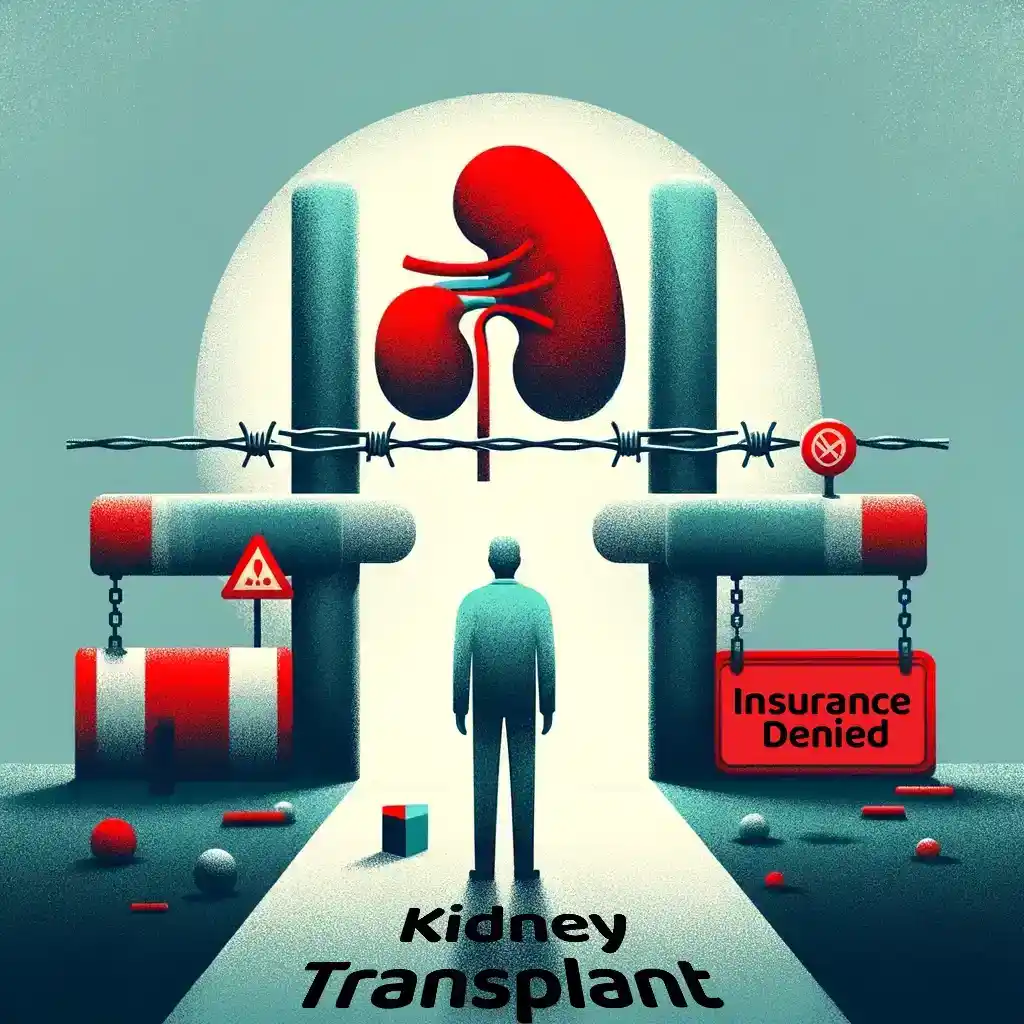
Why is a kidney transplant so expensive?
Many tasks should be done before, during, and after surgery, which can be costly. There's a reason why transplants are so much more expensive than other procedures. To understand why, consider what it takes to transplant an organ. If the organ donor is deceased, there's the expensive medication to keep the organs healthy; then there are the charted flights to get the organs where they need to go. In this part of the article, we will discuss all the processes for this surgery and inform you why kidney transplants cost is expensive.
Pre-transplant costs
Before the transplant surgery, costs include the donor and recipient evaluation, medical tests, compatibility assessments, and consultations. These kidney transplant costs can vary depending on the healthcare facility and location. It is essential to consult with the transplant center or healthcare provider to understand the specific pre-transplant expenses and potential coverage options.
Surgery and hospitalization costs
The surgical procedure itself and the subsequent hospitalization contribute to the overall cost. Factors like the complexity of the surgery, the length of hospitalization, and the healthcare facility's location can impact the expenses. The costs typically cover the surgeon's fees, anesthesia, operating room charges, and postoperative care. It is advisable to consult with the transplant center's financial coordinator to understand the anticipated kidney transplant operation cost and hospitalization costs and discuss potential payment options.
Post-transplant costs
Following the transplant, the recipient requires lifelong immunosuppressive medications to prevent organ rejection, regular follow-up visits, and ongoing medical care. These costs can vary depending on the patient's condition, medicine to take after kidney transplant requirements, and insurance coverage. Considering the long-term costs of post-transplant care and medications is paramount when assessing the financial implications. Transplant centers often have financial counselors who can guide in estimating kidney transplants cost and exploring available assistance programs.
The type and the State of the Donor
The choice of operation you are going for predominantly affects how much you will spend on this surgery. Most of the time, doctors will think about what type of surgery is better for patients, which also depends mainly on the donor's state. There are three main types of donor states. One of them is a deceased donor kidney transplant. In this type, the donor is a dead human. Another type is a Living Donor kidney transplant. In this type, the donor is a living human, which involves some activity. Another type is a pre-emptive kidney transplant. In this type, the transplant happens before total kidney failure. It is not doing for all the people. So the cost of a kidney transplant can be different. The cost can vary depending on the doctor, hospital, and county you choose.
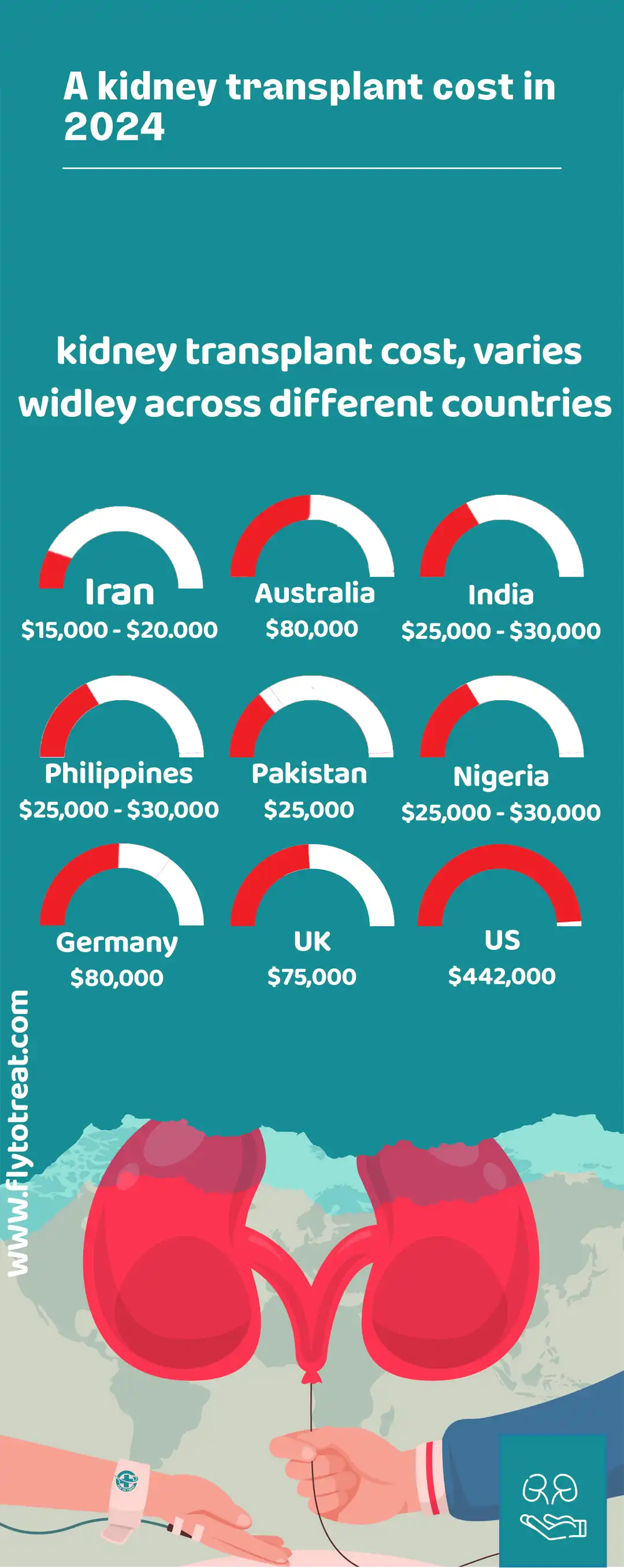
How much do kidney transplants cost in Australia?
Australia is another popular health tourism destination. Good quality medical services are met here with the best surgeons worldwide. But it's a costly country, and the cost of all medical treatments is high, it is one of the most expensive countries for this surgery. Kidney transplant surgery costs $80,000 on average. But you should know that they have the best medical insurance for patients who want to do kidney transplants. People can use insurance to do their surgery. It will cover most parts of the kidney transplant cost.
Iran kidney transplant cost
Kidney transplant in Iran is a the best destination for kidney transplant surgeries due to its blend of high-quality medical services and affordability. Kidney transplant rules is one of the most important item that Iran has easiest rules between other countreis. The country offers a compelling option for those in need, especially with the support of agencies like Fly to Treat, which streamline the process for international patients. With 16,000-20,000 USD, kidney transplant price in Iran is significantly lower than in many other countries, making it accessible to a wider range of individuals. This cost-effectiveness, combined with Iran's high success rates and the absence of long waiting lists, positions Iran as an attractive option for patients seeking timely and effective treatment.
Kidney Transplant price in India
The cost of a kidney transplant in India can vary significantly, ranging from $20,000 to $50,000. Several factors influence this price, including:
- Type of Transplant: Living donor transplants generally cost less than deceased donor procedures.
- Hospital and City: Costs differ depending on the hospital's reputation, location, and facilities. Major cities tend to be more expensive.
- Surgical Technique: Minimally invasive laparoscopic methods have higher costs than open surgeries.
- Immunosuppression Medications: These lifelong medications impact the overall cost.
- Additional Medical Services: Pre- and post-surgical care, including dialysis and follow-up visits, added to the final bill.
Is a kidney transplant cheaper than dialysis?
One of the questions regarding kidney transplants is whether it is worth trying and whether it is cost-effective when comparing it to dialysis. Kidney transplantation is highly cost-effective. The indicative cost of maintaining a patient with end-stage renal failure on renal replacement therapy (dialysis) is %17,500 per patient per year for a patient on peritoneal dialysis and $35,000 per year for a patient on hospital hemodialysis. The immuno-suppression required by a patient with a transplant cost $5,000 per patient per year. Kidney transplantation leads to a cost-benefit in the second and subsequent years of $25,800 pa. The cost-benefit of kidney transplantation compared to dialysis over ten years (the median transplant survival time) is $241,000 or $24,100 per year for each year the patient has a functioning transplanted kidney.
ESRD costs amount to $100,593 per patient yearly. Dialysis can cost up to $145,215 per patient in a year, about 2-3 times that of transplantation.
Kidney transplant has a lot of side effects and can be an expensive treatment. But people should know that, in patients with end-stage renal disease (ESRD), a successful kidney transplant increases long-term survival and is superior to long-term dialysis. It has recently been documented that older kidney transplant recipients report better health-related quality of life than patients on the transplant waiting list.
Studies compared the overall dialysis treatment and the cost of kidney transpalnt over ten years. 66 to 79% of the expected health care costs over ten years were avoided through kidney transplants, which is more cost-effective than long-term dialysis treatment in patients of all ages.
Conclusion
It is vital to consult healthcare professionals or transplant centers for personalized advice and guidance regarding kidney transplant costs. With knowledge and support, potential donors can make informed decisions and contribute to this life-transforming process. Kidney transplants can be costly surgery in many countries since there are a lot of procedures related to this surgery. Many people worldwide await a kidney transplant to eliminate dialysis and other painful and costly treatments. But the question still remains for them: "How much does a kidney donation cost 2024?" or even "How much does a kidney cost?" In some countries like Iran, the cost of this surgery is low, while the quality is on top and is comparable to developed countries. In Iran, you can do your surgery at a low price without waiting long since there is no waiting list. Many people from worldwide come to Iran for this surgery and are satisfied with the result. We at Flytotreat are here to help you during and after surgery and show you the best way to protect yourself during recovery and all the time. And we offer the best kidney transplant fees. Our healthcare team is experienced in this line of work and can help all the patients have a happy life. We use modern technologies to make patients satisfy. If you want your kidney transplant in Iran, contact us, and feel free to ask all your questions.
MEDICALLY REVIEWED BY: Dr. Ali Bazazi
AUTHOR: FlytoTreat's team of Authors
20 January 2024 - Updated At: 11 February 2025
Related Articles
Comment







